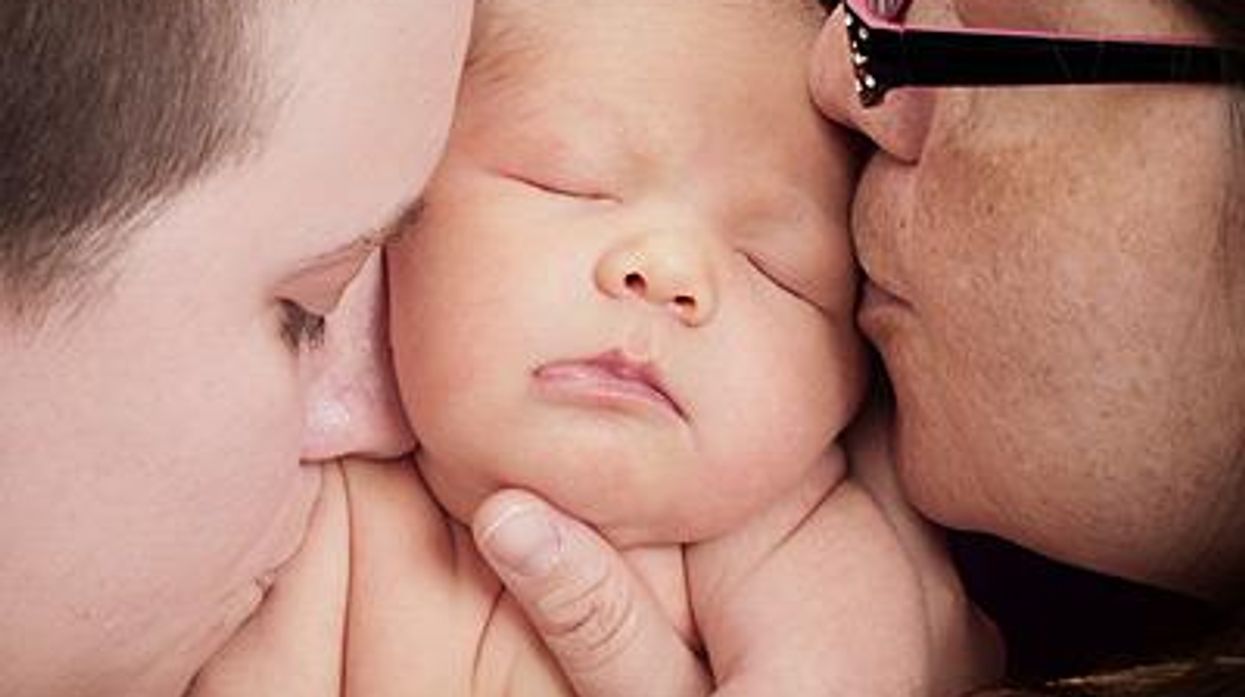While a lot of the conversation around the newly introduced paid family and medical leave bill focuses on heterosexual mothers, in reality its impact would be far broader. The aptly named Family Act would help virtually everyone, and LGBT workers and their families would benefit in significant ways. There are about 5.4 million LGBT workers in the U.S., and more than a third are raising children, though currently they are not guaranteed access to any form of leave, paid or unpaid, if they need to provide care to their families. The Family Act would change that.
The bill will create a social insurance program that provides up to 12 weeks of paid leave so that a worker can recover from their own serious health problem, provide care for a seriously ill family member (including domestic partners), or care for a newborn or newly adopted child. The majority of workers will be eligible for leave, because it uses the same work history criteria as Social Security Disability Insurance, which is age-adjusted to ensure that younger workers aren't left out. The leave will be paid at two thirds of normal pay, and funded by a 0.2 percent payroll tax paid by both workers and employers. This means the average worker would only need to pay about $2 per week into the fund in order to be eligible for paid leave when they need it.
First and very important, a federal intervention would help to level the playing field for LGBT people at a time when geography can create real and significant differences in quality of life. In the absence of federal laws regarding marriage equality and workplace discrimination, the state that a worker lives in currently determines whether they can legally marry a same-sex partner as well as what types of workplace protections they are eligible for. LGBT people who live and work in a state that recognizes same-sex marriages may be eligible for job-protected unpaid leave under 1993's Family and Medical Leave Act. However, about 40 percent of workers don't meet the eligibility requirements under the FMLA, regardless of their state of residence and many more can't afford to take the leave because it is unpaid. The Family Act would be a step toward greater equality by creating a federal family leave program that all LGBT workers could qualify for when they needed to care for an ailing partner, whether they live in Massachusetts or Mississippi.
Second, by establishing gender-neutral leave policies that are tied to the worker rather than the family member needing leave, the Family Act enforces greater gender equity and does not discriminate against non-birth parents. Men and women, adoptive parents and birth mothers all qualify for the same amount of leave -- 12 weeks. Same-sex couples, who are less likely to follow rigid household divisions of labor than heterosexual couples, are particularly likely to benefit from the equitable distribution of leave.
Finally, access to paid leave is particularly important for LGBT workers. Contrary to popular belief, LGBT families are more likely to have household incomes near the poverty line than families. Ensuring that workers have access to paid leave means that workers don't have to make the impossible choice between caring for their families and bringing home a much-needed paycheck.
All families deserve respect and recognition and all LGBT workers deserve access to the same benefits and protections as their heterosexual colleagues. While the Family Act will not solve all of the injustices faced by LGBT individuals in society today, it is a step in the right direction toward more equitable workplace policies.
SARAH JANE GLYNN is associate director of the Women's Economic Policy Program. and LAURA DURSO is the director of the LGBT Research and Communications Project at the Center for American Progress.
Op-Ed: Family Act Gets Us Closer to Workplace Equality
The Family Act would help LGBT workers get access to paid leave and provide them with more time to spend with their families.















